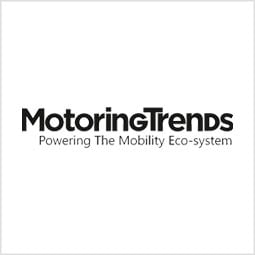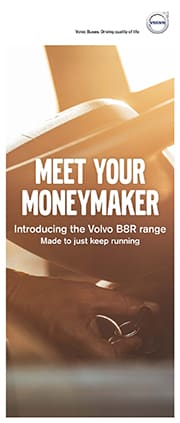A healthy lifestyle for bus captains
 Every profession brings with it specific health risks. We look at how bus captains can lead a healthier lifestyle will being on the road.
Every profession brings with it specific health risks. We look at how bus captains can lead a healthier lifestyle will being on the road.
The issue of health for bus drivers is one that we, the Asian Trucker team are very concerned about. We want to continue to keep reminding our readers to change to a healthy lifestyle. This time we learn from Dr Maya Nagaratnam, Consultant Anesthetist and pain specialist in Hospital Pantai Kuala Lumpur about health risks and how to avoid them when you spend long times sitting behind the steering wheel.
Dr Maya Nagaratnam, was trained in the UK since the age of 18 years. After her training in medical school she studied Anesthesiology (a branch of medicine that focuses on pain relief during and after surgery) with sub specialization on chronic pain. To further deepen her knowledge, she has done two international advanced pain fellowships in chronic pain diseases. Unlike acute pain, chronic pain is now widely accepted as a medical disorder in its own right. She recently returned to Malaysia and is now working at the Hospital Pantai, Kuala Lumpur where she has set up first and only pain care center in Malaysia.
Do's and Don’ts
AT: What sort of disease/health problem are potential health risks that may affect bus drivers, especially those driving coaches on long distance travel?
Dr. Maya: The profession of a bus driver requires long hours of working, spending long time in a sitting position, isolation from friends and family, limited time to have a proper rests, sleep and eat a well balanced meal. All of this could lead to mental and physical health issues. Research that has been done in the US in 2004 was based on very high quality feedback gathered from long haul truckers. Key issues are high blood pressure (hypertension), obesity, stress, spinal issue, chronic neck or low back pain or tinnitus. The latter is a ringing in the ear that comes about due to conditions requiring prolonged periods of time involved in jobs with high vibration exposure e.g long distance driving, oil grilling, operating handheld pumps and similar equipment.
AT: What kind of bad habit that could lead to these diseases?
Dr. Maya: Poor working conditions, habits formed in order to socialise and lack of good quality diet. Caffeine in coffee and tea tends to increase the adrenaline in the body and this combined with the harmful effects of smoking can increase ones risk of heart disease, hypertension and obesity by ten-fold. Combined with lack of opportunity to exercise regularly and the lack of fresh food that is healthily prepared is really difficult for truckers to combat these risks alone. Long hours of isolation and being away from family and friends reduces motivation.
It is a comparatively rough environment with long times spend away from home.Drivers tend to eat more than three times per day and usually it is a heavy meal or fast food. It is not the number of meals consumed that is the problem, but the kind of food that is taken in at rest-stops. Heavy fried foods with lots of calories will result in weight gain and clogged up arteries over time.
AT: What can you suggest to make the lifestyle for bus drivers a healthier one?
Dr. Maya: The most important thing to begin with is a very strong motivation. Involve yourself in a healthy community that can influence you. It takes six weeks to break any habit. To stop smoking, one needs robust willpower to face the temptation. Somehow, the habits can also be caused by the social action where you are not a smoker, but when you are gathering with your friends, you tend to follow them smoking. If it’s hard to take a long period of rest, maybe try to taking regular short rests and to use that time to do some very simple exercise such as walking around the bus; do a little bit of warm up exercise before the day starts, download some exercise apps that can actually track your health progress or bring some exercise equipment along in the bus. In terms of the vibration that drivers will experience, having a good seat support such as the lumbar support pillow will reduce such vibration. Apart from that, try to wear rubber sole work shoes to protect the ankles.
Plan your diet: having a good meal prepared rather than to keep thinking what to eat next. Drink more water and avoid energy drinks, which only result in extra tiredness.



























